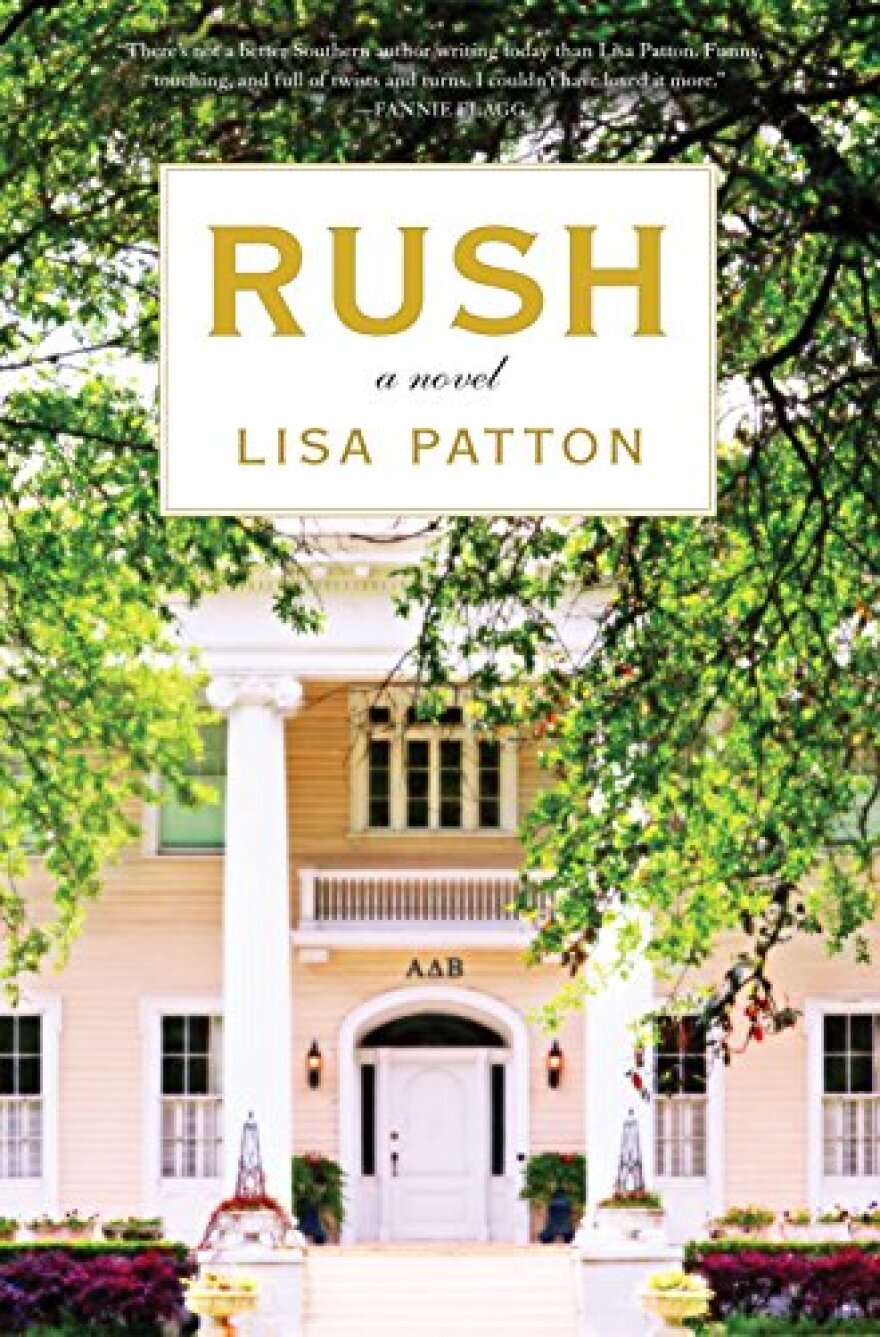Rush: A Novel
Author: Lisa Patton
Publisher: St. Martin’s Press
Pages: 352
Price: $26.99 (Hardcover)
Lisa Patton has three previous novels, all overtly “Southern,” in fact called the “Dixie Series,” with Leelee Satterfield as protagonist.
In her first, “Whistlin’ Dixie in a Nor’easter,” for example, Leelee, a Southern belle, the fish out of water, has to cope with Vermont winters. She also has the struggle of opening an inn and has her heart broken.
In the second and third, “Yankee Doodle Dixie” and “Southern as a Second language,” Leelee is back in Memphis, now a divorced single mom with trusty friends—we are told they provide advice and peach daiquiris, not chardonnay-- and struggling to open a new restaurant, maneuver a new romance with her Yankee chef and figure out what to do when her ex-husband appears on the scene.
The “Dixie” series enjoyed considerable success, so Patton deserves some credit for striking out in a new direction, taking on somewhat more serious material
In “Rush,” all the fish are swimming in their home pond—an SEC campus.
Patton herself graduated from the University of Alabama and while here was an active sorority member but sets “Rush” at Ole Miss in 2016. In her “Personal Note” Patton explains the move: everybody loves Ole Miss and Oxford, which is, without question, charming and colorful.
In “Rush” we follow a group of freshman girls as they settle in at the University and begin the process of getting a bid to their sorority of choice, or any sorority, for that matter.
There is no better advice for a novelist than to write a strong beginning.
“Rush” absolutely does this. The first sentence, spoken by Miss Pearl, the African-American housekeeper for Alpha Delta Beta, is “I work for four hundred and thirty-eight white ladies in a three-story mansion, not a one of them over the age of twenty-two.” Miss Pearl fills us in. Only 66 of them live in, but all of them take their meals there. In one dining room they feed about 450 sisters three times a day.
The house itself, we are told, is over 40,000 square feet, and sorority dues and fees can be as high as $7,600 per semester if the girls live in the house as well as eat there. Miss Pearl, we learn, has worked there for 25 years and earns $11.50 per hour with NO benefits. The staff is reluctant even to visit a doctor for an ailment or a check-up, with predictable, tragic consequences.
But she loves, loves her girls, as if they were her own daughters. The reader simply has to take this at face value, and I believe her even though I am more likely to believe Sofia in The Color Purple, who is nanny to little Reynolds Stanley Earl. When his mother, Miss Eleanor Jane, asks her repeatedly “don’t you just love him?” Sofia finally says “No ma’am…I do not love Reynolds Stanley Earl.” “I love children…But all the colored women that say they love yours is lying. They don’t love Reynolds Stanley any more than I do. But if you so badly raise as to ast ’em, what you expect them to say? Some colored people so scared of whitefolks they claim to love the cotton gin.”
After acquainting us with Miss Pearl, a saint in her own way, the scene moves to the freshman dorm, ten-story Martin Hall.
Ellie, daughter of some nice sensible folks from Memphis, will room with Annie Laurie, whose mother Lilith is a monster—think The Devil Wears Prada.
Lilith—yes, the name means she-devil—has hired a professional dorm-room decorator who, over two days, has installed custom padded headboards (gray linen with pink piping), bolsters of silk applique, shams, bed skirts, lamps trimmed with silk, chinchilla throws, a hundred pillows, monogrammed towels, of course, a flat TV and elaborate window treatments. Finally the Whitmores have delivered a safe in which to keep Annie Laurie’s jewelry.
The cost for this is $20,000. Ellie’s mom is horrified. So was this reader. I asked acquaintances if this were actually done. Yes, is the answer. Maybe this is exaggerated, but yes.
Lilith also sent Annie Laurie to “a ten-thousand-dollar intensive Rush workshop in New York City…. To learn the art of Rush conversation, and how to dress properly and accessorize for all the parties.”
For a while the grotesqueries mount up. The Whitmores host a triple-sized-tent party (tail-gating, ha!) in The Grove—with a crystal chandelier, gigantic flower arrangements, gourmet food in “silver domed chafing dishes,” including oysters on the half shell, a prime rib carving station, eggs Benedict, champagne, liveried servants and a Motown band.
I fully understand the rich have a perfect right to spend their money as they choose, but I reserve the right to be disgusted.
The first half of “Rush” could serve as a Marxist recruiting pamphlet.
This fall, we learn, Alpha Delt will take in 140 new girls. The voting is handled by Sisterhood Select, an online accounting firm. It’s like the Oscars! But there is still cheating.
Patton describes, I presume accurately, the stress of rush, the rigid conformity in behavior and dress, the heart-stopping anxiety and, for the losers, the heart-breaking devastation.
Then, in a turn towards the light, the new pledges, mostly sensible, decent young women, having learned of the exploitation of the help at Alpha Delt, decide to do something about it. “Rush” would not be confused with “The Grapes of Wrath,” but there is a social protest feel to the second half as the injustices are noticed and, to some degree, dealt with.
“Rush” has a knowledgeable air about it and is convincingly realistic.
For a good deal of it, I wished it had been made up.
Don Noble is host of the Alabama Public Television literary interview show “Bookmark with Don Noble.” His most recent book is Belles’ Letters 2, a collection of short fiction by Alabama women.


